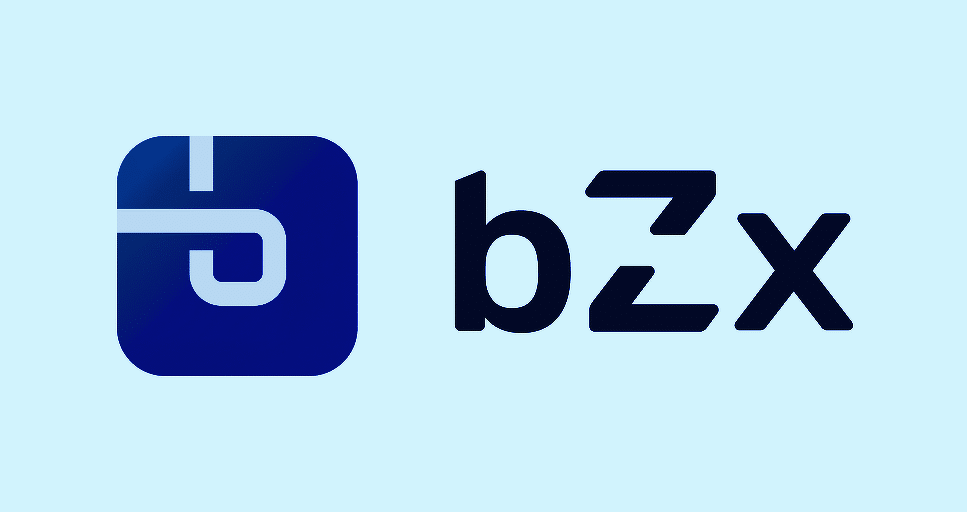bZx DeFi Protocol Suffers $8M Loss in Third Major Attack of the Year
Decentralized finance (DeFi) protocol bZx has been targeted by yet another exploit, resulting in a loss of approximately $8.1 million. The breach, attributed to a faulty smart contract, allowed an attacker to duplicate assets and inflate their token balances. This marks the third significant attack on bZx this year, raising questions about the platform’s security and auditing practices.
Despite the substantial loss, bZx assured users that their funds remain secure, as the platform’s insurance fund will cover the damages.
Details of the Exploit
The attack occurred when a bug in bZx’s smart contract allowed the hacker to duplicate iTokens—interest-bearing tokens on the platform. This exploit enabled the attacker to mint assets worth millions, including:
- 219,200 LINK (~$2.6 million)
- 4,503 ETH (~$1.6 million)
- 1,756,351 USDT (~$1.7 million)
- 1,412,048 USDC (~$1.4 million)
- 667,989 DAI (~$680,000)
The combined value of the stolen funds amounts to $8.1 million.
Hours after identifying the issue, bZx halted the minting and burning of iTokens, implemented a fix, and resumed operations. According to the platform, no user funds were directly impacted, as the loss is being absorbed by the insurance fund.
Bug Discovery and Exploit Simulation
Marc Thalen, a lead engineer at Bitcoin.com, is credited with identifying the bug. Thalen noted that the vulnerability placed over $20 million of bZx funds at risk. In a detailed account, Thalen explained how he tested the exploit:
“From this, I retrieved iUSDC. I then sent this to myself practically duplicating the funds. I then created a claim for 200 USD.”
Thalen’s discovery underscores a significant oversight in bZx’s security processes.
Response from bZx and Security Auditors
bZx’s co-founder Kyle Kistner acknowledged the severity of the bug and stated that the platform’s two audit firms, Peckshield and Certik, are conducting internal investigations to identify the root cause.
Peckshield admitted:
“One audit cannot guarantee to find all potential issues.”
Certik added:
“Security is a journey.”
While some industry experts have called for bZx to pause operations and conduct a complete re-audit of its protocol, Kistner revealed that auditors have not recommended this course of action.
Thalen is expected to receive a $12,500 bug bounty from bZx, a figure derived from an average suggested by three independent panelists.
The Third Attack on bZx in 2024
This latest attack marks the third major security breach for bZx this year. In February, the protocol suffered two separate incidents that resulted in a cumulative loss of approximately $945,000.
The frequency of these attacks has significantly impacted bZx’s total value locked (TVL), which has plunged by 70% since the latest exploit, dropping to just $6.3 million.
Kistner expressed cautious optimism about the protocol’s recovery, stating:
“Things change very quickly in this [DeFi] space.”
Rebuilding Trust in the bZx Ecosystem
In light of repeated breaches, restoring user trust remains a challenge for bZx. Critics argue that the protocol must prioritize:
- Comprehensive Re-Audits: Partnering with multiple security firms to ensure the integrity of its smart contracts.
- Enhanced Bug Bounties: Incentivizing ethical hackers to identify vulnerabilities before attackers can exploit them.
- Transparent Communication: Keeping users informed about security upgrades and incident responses.
When asked how bZx plans to regain trust, Kistner replied:
“We want to create products and incentive structures so attractive that users are essentially forced to use us regardless of how they feel about our brand.”
The Broader Implications for DeFi Security
The bZx exploit serves as a stark reminder of the challenges facing the DeFi sector. While decentralized platforms offer innovation and autonomy, they also come with heightened security risks. Smart contract vulnerabilities, such as the one exploited in bZx, can lead to significant financial losses and erode user confidence.
Key Lessons for the DeFi Industry Include:
- Ongoing Audits: Regular reviews of smart contracts are essential to identify and patch vulnerabilities.
- Community Vigilance: Platforms must foster a collaborative environment where ethical hackers can report bugs without fear of reprisal.
- Insurance Funds: Building robust insurance mechanisms can help protect user funds in the event of an attack.
Conclusion
The latest attack on bZx highlights the importance of robust security measures in the DeFi space. While the platform’s insurance fund has mitigated the immediate impact on users, the incident raises broader concerns about the effectiveness of auditing processes and the frequency of exploits in decentralized systems.
As bZx works to recover from this setback, its ability to implement lasting security improvements and regain user trust will be critical to its survival in the competitive DeFi landscape.
To learn more about the innovative startups shaping the future of the crypto industry, explore our article on latest news, where we delve into the most promising ventures and their potential to disrupt traditional industries.
Disclaimer: The information provided is not trading advice, Bitcoinworld.co.in holds no liability for any investments made based on the information provided on this page. We strongly recommend independent research and/or consultation with a qualified professional before making any investment decisions.



